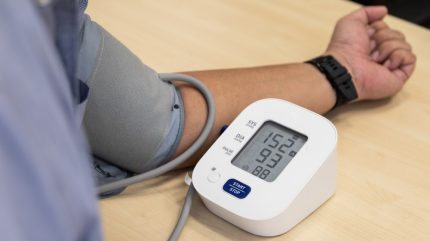
Corcept Therapeutics has shared some results from its Phase III GRADIENT trial for relacorilant – its experimental treatment for Cushing’s syndrome caused by adrenal gland pathology.
The trial will be used alongside data from the earlier GRACE trial to support the company’s new drug application (NDA) submission this quarter. However, it missed its primary endpoint.

Discover B2B Marketing That Performs
Combine business intelligence and editorial excellence to reach engaged professionals across 36 leading media platforms.
The complete results of the company’s GRADIENT trial will be presented at a medical conference next year, but current results – released on 30 October – demonstrate that there was no statistically significant difference in hypertension in relacorilant and placebo patients.
The randomised double-blind trial included 137 patients across sites in the US, Europe and Israel. Over 22 weeks, half of the patients received relacorilant while the other half received a placebo.
The trial’s primary endpoint was the improvement in systolic blood pressure (SBP) compared to placebo. Its secondary endpoints were concerned with hyperglycemia, weight and body composition.
Mean SBP saw a reduction of 6.6 mm Hg in relacorilant patients compared to baseline. This is in contrast to a reduction of 2.1 mm Hg in placebo patients. The difference between these results was not statistically significant.

US Tariffs are shifting - will you react or anticipate?
Don’t let policy changes catch you off guard. Stay proactive with real-time data and expert analysis.
By GlobalDataHowever, Corcept’s GRADIENT trial did meet some secondary endpoints and was well-tolerated. Patients taking relacorilant exhibited clinically meaningful and statistically significant improvements in hypertension, hyperglycemia, weight and body composition compared to baseline. In contrast, placebo patients did not.
Cushing’s syndrome is caused by an excess of cortisol and primarily affects those using steroid medications, which contain a synthetic version of the hormone. The condition is characterised by an increase of fat (particularly on the neck and shoulders), a change in face shape, stretch marks and skin which bruises easily. Cushing’s syndrome can also cause hypertension.
Corcept Therapeutics also shared that relacorilant was well-tolerated in the GRADIENT trial. It reported that there were no cases of relacorilant-induced hypokalemia, endometrial hypertrophy or related vaginal bleeding, adrenal insufficiency or QT prolongation.
The NDA submission for relacorilant for Cushing’s syndrome is expected this quarter. The GRADIENT trial will support results from the company’s GRACE trial, which were shared in June. The GRACE trial included 152 patients and met its primary endpoint of loss of hypertension control in the randomised-withdrawal phase.
Considering the results of the GRADIENT trial, Corcept Therapeutics’ chief development officer Bill Guyer said: “GRADIENT’s positive results in patients with Cushing’s syndrome confirm relacorilant’s promise as a significant medical advancement for the treatment of this deadly disease. As was true in the GRACE study, patients in GRADIENT who received relacorilant experienced clinically meaningful improvements in a broad range of hypercortisolism signs and symptoms, without suffering some of the serious adverse effects that can arise in patients taking currently approved treatments.
“These data will be a powerful addition to relacorilant’s NDA, which we plan to submit by year-end.”





